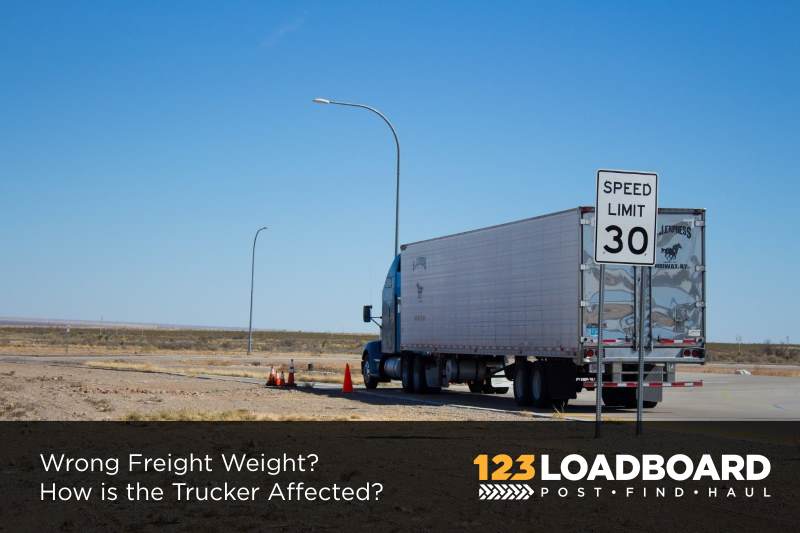Wrong Freight Weight? How is the Trucker Affected?
LTL carriers (that is, “less than truckload” shipment carriers who move relatively small freight) are facing an array of pressures in the current industry landscape regarding freight weight. Naturally, customers always want lower rates and the price competition is a powerful force in contract business negotiations in today’s marketplace. At the same time, the government is increasing the number and rigor of regulatory compliance requirements for truck drivers and driving costs up.
Misrepresenting Freight Weight on The Rise
With all of that going on, there is also a rising trend of shippers misrepresenting freight since 2014’s major capacity crunch, piling on to many challenges already facing the industry. Shippers have a lot of negotiating power when placing orders for shipment, but ultimately the carriers are the ones with the final say over shipping costs. And more carriers are taking greater care to verify weights and increase freight inspections. As a result, shippers will need to understand how this will affect their future relationship with freight carriers.
The Dangers of Misrepresenting Freight Weight
When a shipper represents the freight weight incorrectly there is much more at stake than the fairness of the cost charged by the vendor. Incorrect weight could result in a trailer being unsafely overloaded with freight, potentially damaging the truck, trailer, or equipment, and causing safety risks.
Tractor trailers are involved in highway accidents every day, and one cause is the misrepresentation of weight to carriers slipping through due to a lack of verification. When taking a sharp turn at highway speeds, the risk of an automobile accident is increased and by an overloaded truck. The result can be damage to public infrastructure, freight, and other shippers’ goods.
The Liabilities of Misrepresenting Freight
Your damaged freight may not be covered by insurance if the carrier determines you have misrepresented the weight. You may also be liable for damages to other companies’ freight. Worst of all, human lives can be put in danger. Fully loaded tractor trailer trucks can weigh as much as 80,000 lbs. in the United States. Overloading them and risking an accident puts human lives in danger and the results can be tragic and lethal.
The Costs to The Shipper
After being caught misrepresenting freight the first time, a shipper may be required to undergo mandatory inspections on future shipments. Another infraction could result in reclassification and reassignment of your freight to another shipment method, and possibly a ban from using a specific carrier, maybe one the shipper needs most because of their specific requirements.
Costs can increase for shippers that misrepresent freight, as the carrier will reassess costs after discovering the inaccuracy, and may add additional fees as a penalty for the misrepresented weight. The additional cost can end up being in excess of what the shipper hoped to save for deliberately misrepresenting the freight.
The Costs to Other Shippers
The overall result for other shippers is time lost to greater scrutiny, more inspections, more complicated processes, and longer delivery schedules. The net effect is a drag on the overall efficiency of a global logistical system that prioritizes fast and efficient delivery of goods. There is also an increase in costs that affect vendors and customers at every link in the chain, making business less profitable for everyone overall.
The bottom line is, misrepresenting freight weight is incredibly irresponsible, short sighted and dishonest.



Give us your opinion!